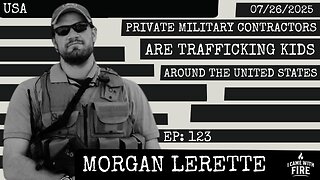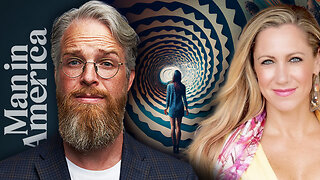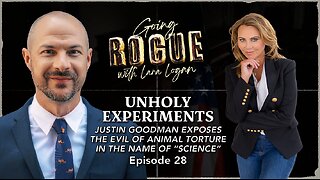Premium Only Content

Reflections on "Open Society" by Karl Popper
Welcome to the Dalek Channel. Thank you for watching.
Here are a few thoughts on a Work of Karl Popper.
Technically, the title of this work is “Open Society and its enemies”.
It has been said an engineer is a man who can do for ten shillings what any fool can do for a pound. A philosopher is often someone who states in a thousand pages what a normal person can write in one.
At its core, Science is about prediction, and also acceptance. The Universe and the active components within it are what they are. Popper begins by stating that the historicist approach, that great people, classes, states, technologies or leaders or forces cannot be used to make predictions or yield results. To understand these historicist ideas, Popper then presents the ideas of Plato, Socrates, Pericles and Hegel and Marx.
He writes that:
“It is widely believed that a truly scientific or philosophical attitude towards politics, and a deeper understanding of social life in general, must be based upon a contemplation and interpretation of human history.”
“An historical sketch undertaken with this aim can, at the same time, serve to analyze the variety of ideas which have gradually accumulated around the central historicist doctrine—the doctrine that history is controlled by specific historical or evolutionary laws whose discovery would enable us to prophesy the destiny of man.”
And also, another lengthy quote, that:
“In the case of racialism, this is thought of as a kind of natural law; the biological superiority of the blood of the chosen race explains the course of history, past, present, and future; it is nothing but the struggle of races for mastery. In the case of Marx’s philosophy of history, the law is economic; all history has to be interpreted as a struggle of classes for economic supremacy.
The historicist character of these two movements makes our investigation topical. We shall return to them in later parts of this book. Each of them goes back directly to the philosophy of Hegel. We must, therefore, deal with that philosophy as well. And since Hegel in the main follows certain ancient philosophers, it will be necessary to discuss the theories of Heraclitus, Plato and Aristotle, before returning to the more modern forms of historicism.”
“I shall contrast historicism, as we find it in Plato, with a diametrically opposite approach, also to be found in Plato, which may be called the attitude of social engineering.”
“The social engineer does not ask any questions about historical tendencies or the destiny of man. He believes that man is the master of his own destiny and that, in accordance with our aims, we can influence or change the history of man just as we have changed the face of the earth. He does not believe that these ends are imposed upon us by our historical background or by the trends of history, but rather that they are chosen, or even created, by ourselves, just as we create new thoughts or new works of art or new houses or new machinery. As opposed to the historicist who believes that intelligent political action is possible only if the future course of history is first determined, the social engineer believes that a scientific basis of politics would be a very different thing; it would consist of the factual information necessary for the construction or alteration of social institutions, in accordance with our wishes and aims. Such a science would have to tell us what steps we must take if we wish, for instance, to avoid depressions, or else to produce depressions; or if we wish to make the distribution of wealth more even, or less even. In other words, the social engineer conceives as the scientific basis of politics something like a social technology (Plato, as we shall see, compares it with the scientific background of medicine), as opposed to the historicist who understands it as a science of immutable historical tendencies.”
Or in effect the social engineer can alter themselves and society to be whatever it wants; to requote:
“HE DOES NOT BELIEVE THAT THESE ENDS ARE IMPOSED UPON US BY OUR HISTORICAL BACKGROUND OR BY THE TRENDS OF HISTORY, BUT RATHER THAT THEY ARE CHOSEN, OR EVEN CREATED, BY OURSELVES, JUST AS WE CREATE NEW THOUGHTS OR NEW WORKS OF ART OR NEW HOUSES OR NEW MACHINERY”.
There are no gingerbread men, we choose our fate like gods.
“The social engineer and technologist, on the other hand, will hardly take much interest in the origin of institutions, or in the original intentions of their founders (although there is no reason why he should not recognize the fact that ‘only a minority of social institutions are consciously designed, while the vast majority have just “grown”, as the un- designed results of human actions’). Rather, he will put his problem like this. If such and such are our aims, is this institution well designed and organized to serve them?”
“Speaking more generally, we can say that the engineer or the technologist approaches institutions rationally as means that serve certain ends, and that as a technologist he judges them wholly according to their appropriateness, efficiency, simplicity, etc.”
In other words, all institutions can be broken down, most only fell together by accident and were not planned, and therefore have no scientific justification. The assumption here is that planning can occur, and that a democratic system will selflessly vote and decide upon what is practical. This is naturally anti-conservative.
Popper admits that:
“My attitude towards historicism is one of frank hostility, based upon the conviction that historicism is futile, and worse than that.”
Of course this is all futile, since he does not believe that these ends are imposed upon us by our historical background or by the trends of history, but rather that they are chosen, or even created, by ourselves, and then apparently he contradicts himself in:
“But on this idealist foundation Plato constructs an astonishingly realistic theory of society, capable of explaining the main trends in the historical development of the Greek city-states as well as the social and political forces at work in his own day.”
So an astonishingly realistic theory of society, capable of explaining the main trends in the historical development of these entities has been developed. From my own feeble understanding, he appears to be admitting thee existence of trends, and also denouncing that these trends are useful or important.
Somewhat useless excursions and dead ends litter the book. For example:
“In full accordance with this general theory is Plato’s story, in the Timaeus, of the origin of species. According to this story, man, the highest of animals, is generated by the gods; the other species originate from him by a process of corruption and degeneration. First, certain men—the cowards and villains—degenerate into women. Those who are lacking wisdom degenerate step by step into the lower animals. Birds, we hear, came into being through the transformation of harmless but too easy-going people who would trust their senses too much; ‘land animals came from men who had no interest in philosophy’; and fishes, including shell-fish, ‘degenerated from the most foolish, stupid, and … unworthy’ of all men.”
Herein we can score some easy points.
“We see that Plato aimed at setting out a system of historical periods, governed by a law of evolution; in other words, he aimed at a historicist theory of society. This attempt was revived by Rousseau, and was made fashionable by Comte and Mill, and by Hegel and Marx.”
Some more harsh words of the Platoists:
“Democrats are described as profligate and niggardly, as insolent, lawless, and shameless, as fierce and as terrible beasts of prey, as gratifying every whim, as living solely for pleasure, and for unnecessary and unclean desires. (‘They fill their bellies like the beasts’, was Heraclitus’ way of putting it.) They are accused of calling ‘reverence a folly …; temperance they call cowardice …; moderation and orderly expenditure they call meanness and boorishness’, etc.”
“Before proceeding to this description, I wish to express my belief that personal superiority, whether racial or intellectual or moral or educational, can never establish a claim to political prerogatives, even if such superiority could be ascertained. Most people in civilized countries nowadays admit racial superiority to be a myth; but even if it were an established fact, it should not create special political rights, though it might create special moral responsibilities for the superior persons. Analogous demands should be made of those who are intellectually and morally and educationally superior; and I cannot help feeling that the opposite claims of certain intellectualists and moralists only show how little successful their education has been, since it failed to make them aware of their own limitations, and of their Pharisaism.”
No personal superiority can establish a claim of political perogatives.
On Plato, and Platos’s theory of the fall of man, can civilizations:
“For racial degeneration explains the origin of disunion in the ruling class, and with it, the origin of all historical development. The internal disunion of human nature, the schism of the soul, leads to the schism of the ruling class. And as with Heraclitus, war, class war, is the father and promoter of all change, and of the history of man, which is nothing but the history of the breakdown of society. We see that Plato’s idealist historicism ultimately rests not upon a spiritual, but upon a biological basis; it rests upon a kind of meta-biology of the race of nature and convention of men. Plato was not only a naturalist who proffered a biological theory of the state, he was also the first to proffer a biological and racial theory of social dynamics, of political history.”
“Plato succeeded in giving an astonishingly true, though of course somewhat idealized, reconstruction of an early Greek tribal and collectivist society similar to that of Sparta. He applied these historicist principles to the story of the Decline and Fall of the Greek city-states, and especially to a criticism of democracy, which he described as effeminate and degenerate.”
For popper of course, there are no historical forces. The social engineer after all DOES NOT BELIEVE THAT THESE ENDS ARE IMPOSED UPON US BY OUR HISTORICAL BACKGROUND OR BY THE TRENDS OF HISTORY, BUT RATHER THAT THEY ARE CHOSEN, OR EVEN CREATED, BY OURSELVES”.
Plato, unlike the social engineer, “conceived these declining societies as some kind of organism, and the decline as a process similar to ageing. And he believed that the decline is well deserved, in the sense that moral decay, a fall and decline of the soul, goes hand in hand with that of the social body.”
Essentially, claims Popper, the entire responsibility and power for the formulation of society is ours, and ours alone. We are free to create it in any form, since the historicists, ethicist, and religious and all other ideas are mere choices.
“All these ethical theories attempt to find somebody, or perhaps some argument, to take the burden from us. But we cannot shirk this responsibility. Whatever authority we may accept, it is we who accept it. We only deceive ourselves if we do not realize this simple point.”
Popper summarizes his goal for the state as:
“We should rather put our question in this way: What do we demand from a state? What do we propose to consider as the legitimate aim of state activity? And in order to find out what our fundamental political demands are, we may ask: Why do we prefer living in a well-ordered state to living without a state, i.e. in anarchy? This way of asking our question is a rational one. It is a question which a technologist must try to answer before he can proceed to the construction or reconstruction of any political institution.
For only if he knows what he wants can he decide whether a certain institution is or is not well adapted to its function. Now if we ask our question in this way, the reply of the humanitarian will be: What I demand from the state is protection; not only for myself, but for others too. I demand protection for my own freedom and for other people’s. I do not wish to live at the mercy of anybody who has the larger fists or the bigger guns. In other words, I wish to be protected against aggression from other men. I want the difference between aggression and defence to be recognized, and defence to be supported by the organized power of the state. (The defence is one of a status quo, and the principle proposed amounts to this—that the status quo should not be changed by violent means, but only according to law, by compromise or arbitration, except where there is no legal procedure for its revision.) I am perfectly ready to see my own freedom of action somewhat curtailed by the state, provided I can obtain protection of that freedom which remains, since I know that some limitations of my freedom are necessary; for instance, I must give up my ‘freedom’ to attack, if I want the state to support defence against any attack.
But I demand that the fundamental purpose of the state should not be lost sight of; I mean, the protection of that freedom which does not harm other citizens.”
The big comfy pillow of the state will defend the individual, restricting freedoms equally.
Popper talks of his piecemeal social engineering:
“The piecemeal engineer will, accordingly, adopt the method of searching for, and fighting against, the greatest and most urgent evils of society, rather than searching for, and fighting for, its greatest ultimate good.”
“Blueprints for piecemeal engineering are comparatively simple. They are blueprints for single institutions, for health and unemployed insurance, for instance, or arbitration courts, or anti-depression budgeting, or educational reform. If they go wrong, the damage is not very great, and a re-adjustment not very difficult. They are less risky, and for this very reason less controversial.”
“It is my conviction that by expressing the problem of politics in the form ‘Who should rule?’ or ‘Whose will should be supreme?’, etc., Plato created a lasting confusion in political philosophy.”
“But this leads to a new approach to the problem of politics, for it forces us to replace the question: Who should rule? by the new question: How can we so organize political institutions that bad or incompetent rulers can be prevented from doing too much damage?”
“They assume that political power is, essentially, sovereign. If this assumption is made, then, indeed, the question ‘Who is to be the sovereign?’ is the only important question left.”
Or, how shall arbitrary power be restrained?
“But we must never forget that excellent leaders cannot be produced by rational methods, but only by luck. “
“What I criticize under the name Utopian engineering recommends the reconstruction of society as a whole, i.e. very sweeping changes whose practical consequences are hard to calculate, owing to our limited experiences. It claims to plan rationally for the whole of society, although we do not possess anything like the factual knowledge which would be necessary to make good such an ambitiousclaim. We cannot possess such knowledge since we have insufficient practical experience in this kind of planning, and knowledge of facts must be based upon experience.
At present, the sociological knowledge necessary for large-scale engineering is simply non-existent.”
Interestingly, in a time of absolute monarchs, the USA was created, almost as a utopian dream as a republic. And since then almost all autocracies have withered. Again we must ask, would a piecemeal social engineer still be at work redefining indentured servitude instead of abolishing slavery?
“Utopian”, which is the opposite of his piecemeal, seems like a poorly defined word.
“The institution which according to Plato has to look after the future leaders can be described as the educational department of the state. It is, from a purely political point of view, by far the most important institution within Plato’s society. It holds the keys to power. For this reason alone it should be clear that at least the higher grades of education are to be directly controlled by the rulers.”
Interesting parallels can be drawn with existing higher education.
“Men believed God to rule the world. This belief limited their responsibility. The new belief that they had to rule it themselves created for many a well-nigh intolerable burden of responsibility. All this has to be admitted.
But I do not doubt that the Middle Ages were, even from the point of view of Christianity, not better ruled than our Western democracies.”
When you use the word “But” you are contradicting yourself.
This authoritarianism limited responsibility and the net result was not an improvement in government, and its removal lead to neuroticism. Wonderful. No lack of mud is being thrown around at Hegel and the others.
“Hegel, installed from above, by the powers that be, as the certified Great Philosopher, was a flat-headed, insipid, nauseating, illiterate charlatan, who reached the pinnacle of audacity in scribbling together and dishing up the craziest mystifying nonsense.
This nonsense has been noisily proclaimed as immortal wisdom by mercenary followers and readily accepted as such by all fools, who thus joined into as perfect a chorus of admiration as had ever been heard before. The extensive field of spiritual influence with which Hegel was furnished by those in power has enabled him to achieve the intellectual corruption of a whole generation.”
“It is even considered by many to be the basic postulate of political ethics, especially since Wilson’s well-meant but less well-considered principle of national self-determination. The explanation is that Wilson, who was a sincere democrat… He fell a victim to his upbringing in the metaphysical political theories of Plato and of Hegel, and to the nationalist movement based upon them.”
As for the Saint Wilson, the idea that crippling the states of Europe by producing ineffectual nations on their doorstep set against each other from naiveté is absurd.
Furthermore, Popper argues:” The principle of the national state is not only inapplicable but it has never been clearly conceived. It is a myth. It is an irrational, a romantic and Utopian dream, a dream of naturalism and of tribal collectivism.”
“Yet this method of penetrating dividing and confusing the humanitarian camp and of building up a largely unwitting and therefore doubly effective intellectual fifth column achieved its greatest success only after Hegelianism had established itself as the basis of a truly humanitarian movement: of Marxism, so far the purest, the most developed and the most dangerous form of historicism.”
Reductionism is on full display as:
“Men are not, when brought together, converted into another kind of substance. This last remark of Mill’s exhibits one of the most praiseworthy aspects of psychologism, namely, its sane opposition to collectivism and holism, its refusal to be impressed by Rousseau’s or Hegel’s romanticism—by a general will or a national spirit, or perhaps, by a group mind. Psychologism is, I believe, correct only in so far as it insists upon what may be called ‘methodological individualism’ as opposed to ‘methodological collectivism’; it rightly insists that the ‘behaviour’ and the ‘actions’ of collectives, such as states or social groups, must be reduced to the behaviour and to the actions of human individuals.“
“But the secret of intellectual excellence is the spirit of criticism; it is intellectual independence. And this leads to difficulties which must prove insurmountable for any kind of authoritarianism. The authoritarian will in general select those who obey, who believe, who respond to his influence. But in doing so, he is bound to select mediocrities. For he excludes those who revolt, who doubt, who dare to resist his influence. Never can an authority admit that the intellectually courageous, i.e. those who dare to defy his authority, may be the most valuable type.”
“I mean not only the perhaps more humorous than scandalous fact that such clowns are taken seriously, and that they are made the objects of a kind of worship, of solemn although often boring studies (and of examination papers to match).”
“I have tried to show the identity of Hegelian historicism with the philosophy of modern totalitarianism. This identity is seldom clearly enough realized. Hegelian historicism has become the language of wide circles of intellectuals, even of candid ‘anti-fascists’ and ‘leftists’. “
“And people who sincerely believe that they know how to make heaven on earth are most likely to adopt the conspiracy theory, and to get involved in a counter-conspiracy against non-existing conspirators. For the only explanation of their failure to produce their heaven is the evil intention of the Devil, who has a vested interest in hell.”
“Conspiracies occur, it must be admitted. But the striking fact which, in spite of their occurrence, disproves the conspiracy theory is that few of these conspiracies are ultimately successful. Conspirators rarely consummate their conspiracy.”
Again, few examples are given, why bother? Popper can simply state things because he’s so clever.
He goes on to write:
“We see here clearly that not all consequences of our actions are intended consequences; and accordingly, that the conspiracy theory of society cannot be true because it amounts to the assertion that all results, even those which at first sight do not seem to be intended by anybody, are the intended results of the actions of people who are interested in these results.”
In other words, because there are consequences and these can’t be understood, no conspiracies are successful. What about opportunism? Was the housing market credit default swap event of the years two thousand and eight to nine unexpected? The elder Moltke put it that” No plan survives contact with the enemy”. War still occurs though.
It all seems a little niave:
“Once we have achieved formal freedom, we can control vote-buying in every form. There are laws to limit the expenditure on electioneering, and it rests entirely with us to see that much more stringent laws of this kind are introduced. The legal system can be made a powerful instrument for its own protection. In addition, we can influence public opinion, and insist upon a much more rigid moral code in political matters. All this we can do;”
“It is even conceivable that there is no solution; that the acquisition of new economic powers by a state—whose powers, as compared to those of its citizens, are always dangerously great—will make it irresistible. So far, we have shown neither that freedom can be preserved, nor how it can be preserved.”
“In an open society, many members strive to rise socially, and to take the places of other members. This may lead, for example, to such an important social phenomenon as class struggle. We cannot find anything like class struggle in an organism. The cells or tissues of an organism, which are sometimes said to correspond to the members of a state, may perhaps compete for food; but there is no inherent tendency on the part of the legs to become the brain, or of other members of the body to become the belly. Since there is nothing in the organism to correspond to one of the most important characteristics of the open society, competition for status among its members, the so-called organic theory of the state is based on a false analogy.”
“These, Socrates insisted, are the things that matter. And what he criticized in democracy and democratic statesmen was their inadequate realization of these things. He criticized them rightly for their lack of intellectual honesty, and for their obsession with power-politics. With his emphasis upon the human side of the political problem, he could not take much interest in institutional reform. It was the immediate, the personal aspect of the open society in which he was interested.”
It seems, for a statement such as Socrates was interested in the personal aspects of the open society, and in fact: “Socrates was, fundamentally, the champion of the open society,” that the open society has been defined by actions of other people, and not clearly as an individual entity, or through its actions. This does not seem to be entirely honest.
Of course, according to Popper, there is no alternative, or “TINA” as politicians like to call it:
“But if we wish to remain human, then there is only one way, the way into the open society. We must go on into the unknown, the uncertain and insecure, using what reason we may have to plan as well as we can for both security and freedom.”
“What we need is not holism. It is piecemeal social engineering.”
“This leads us to the more important second point, to the irrationalism which is inherent in radicalism. In all matters, we can only learn by trial and error, by making mistakes and improvements; we can never rely on inspiration, although inspirations may be most valuable as long as they can be checked by experience. Accordingly, it is not reasonable to assume that a complete aestheticism, perfectionism, utopianism reconstruction of our social world would lead at once to a workable system. Rather we should expect that, owing to lack of experience, many mistakes would be made which could be eliminated only by a long and laborious process of small adjustments; in other words, by that rational method of piecemeal engineering whose application we advocate.”
Analysis is a wonderful thing. Throwing away the context of culture, language, geopolitics and religion is not. When we maximize a function, we try to satisfy a constraint. And the nature of the constraint, whether linear programming simplexes, or simulated annealing is used will determine the outcome. Who is going to decide? Why, the catechism for the technocrat.
A natural question can be raised: is the abolition of slavery a piecemeal engineering method? Or is it radical restructuring?
“I am not in all cases and under all circumstances against a violent revolution. I believe with some medieval and Renaissance Christian thinkers who taught the admissibility of tyrannicide that there may indeed, under a tyranny, be no other possibility, and that a violent revolution may be justified. In other words, the use of violence is justified only under a tyranny which makes reforms without violence impossible, and it should have only one aim, that is, to bring about a state of affairs which makes reforms without violence possible.”
Piecemeal indeed, unless it isn’t.
Popper isn’t a mathematician, and he seems to sometimes border on insanity:
“Now it is easy to see that this principle of an uncritical rationalism is inconsistent; for since it cannot, in its turn, be supported by argument or by experience, it implies that it should itself be discarded. (It is analogous to the paradox of the liar, i.e. to a sentence which asserts its own falsity.)
Uncritical rationalism is therefore logically untenable; and since a purely logical argument can show this, uncritical rationalism can be defeated by its own chosen weapon, argument.
This criticism may be generalized. Since all argument must proceed from assumptions, it is plainly impossible to demand that all assumptions should be based on argument. The demand raised by many philosophers that we should start with no assumption whatever and never assume anything about ‘sufficient reason’, and even the weaker demand that we should start with a very small set of assumptions (‘categories’), are both in this form inconsistent.
For they themselves rest upon the truly colossal assumption that it is possible to start without, or with only a few assumptions, and still to obtain results that are worth-while.”
It is axiomatic that in mathematics one starts with axioms and a schema and creates theorems, and for an account of this, Hofstadter’s Godel, Escher Bach is an example. Yes, it is a truly colossal assumption that we can start with a few assumptions and obtain worthwhile results. Physicists, Chemists and Engineers use this reasoning every day.
It’s like a roller-coaster. A roller coaster through Plato and Socrates and Hegel and Marx. But it’s a roller coaster where you push your car through the mud and the rain, the end up with:
“Is there a meaning in history? I do not wish to enter here into the problem of the meaning of ‘meaning’; I take it for granted that most people know with sufficient clarity what they mean when they speak of the ‘meaning of history’ or of the ‘meaning or purpose of life’. And in this sense, in the sense in which the question of the meaning of history is asked, I answer: History has no meaning.”
To what extent are the states in context of any environment?
To what extent are the needs of the state directly incompatible with the individual?
To what extent can any tinkering get out of hand? How is the scale of piecemeal defined? A sort of rule of thumb. Ignored is how all of these items interact with each other, and Poppers’ only way out is to suggest s “piecemeal social engineering”, which he spends very little space defining and justifying.
In fact the majority of the work is long investigations of a few western thinkers and the slinging of mud.
Popper is probably capable of writing something better that this book.
The book is hardly meant as an educational text. The effect of the likes of Machiavelli or an independent and corrupt press are ignored. As are the ideas of other cultures. This is, a thoroughly western viewpoint. Much of the time is spent on flights into the words of Greeks, Hegel and Marx. It can be said that we use the ideas of the past, even unconsciously, though no well develop frame-work is presented. “There is no alternative” and we can do it” are not realistic plans, and with the perambulations into ancient philosophy taken away, it is basically on the level of “Rich dad poor dad”. A few ides here and there, not thought out in any great detail.
That we often use out dated ideas and in appropriate metaphors and analogies is effectively axiomatic. However, the excursion into long lost worlds is hardly appropriate. We do not exhume Sumerian tablets when we learn home brewing because the world Alcohol derives from the Babylonian, we do not exalt nineteenth century physics textbooks and we do not limit ourselves to the viewpoints of the past.
Overall, its score is two and a half out of five. It doesn’t rise above any randomly selected book, and yes, there are alternatives.
-
 7:38:15
7:38:15
PukeOnABook
22 days agoMy Autobiography, By Benito Mussolini 1928. A Puke(TM) Audiobook
431 -
 1:40:30
1:40:30
I_Came_With_Fire_Podcast
13 hours agoPrivate Military Contractors Are TRAFFICKING KIDS Around The United States
23.2K11 -
 LIVE
LIVE
JdaDelete
14 hours ago $1.85 earnedFinal Fantasy VII Rebirth | Jdub's Journey Part 8 - Corel Prison
216 watching -
 2:39:09
2:39:09
LFA TV
19 hours agoTHE ARK ENCOUNTER LIVE EVENT! 7.26.25 9AM EST-12PM EST
201K26 -
 3:20:34
3:20:34
Sgt Wilky Plays
4 hours agoTherapeutics with Dr Kong
12K -
 1:10:23
1:10:23
Man in America
1 day agoAre MK-Ultra Parasites Rewiring Your Brain? | Detoxing, Peptides & Parasite Warfare w/ Diane Kazer
42K56 -

TheSchleppy
1 day ago $0.70 earned✨TheSchleppy✨24HR 2 YRS ON RUMBLE STREAM! RIGHT INTO RUMBLE HALO EVENT!
13.2K5 -
 3:08:21
3:08:21
JakRazGaming
5 hours agoPlaying Ghost of Tsushima DIRECTOR'S CUT!! on PS5 Stream 6
20.9K2 -
 29:06
29:06
Scary Mysteries
1 day agoThe Corpsewood Manor Murders: Satan, Secrets, and a Savage End
18.4K13 -
 2:08:56
2:08:56
Lara Logan
1 day agoUNHOLY EXPERIMENTS: Justin Goodman Exposes the Evil of Animal Torture | Ep 28
18.9K32